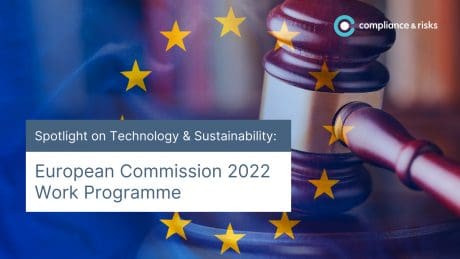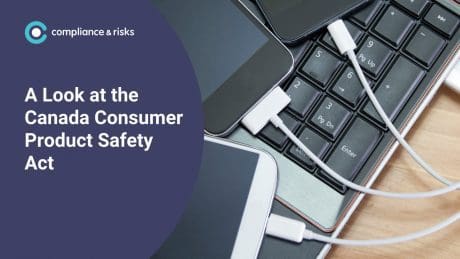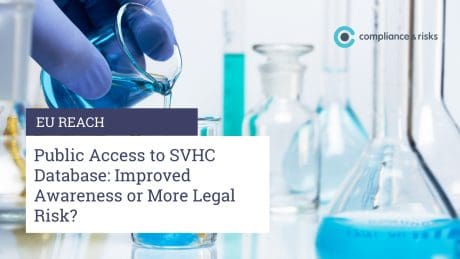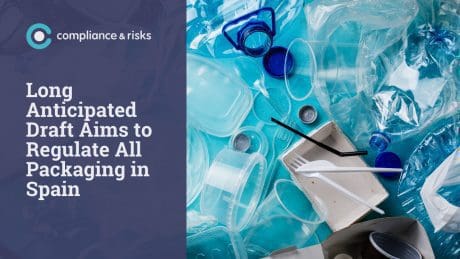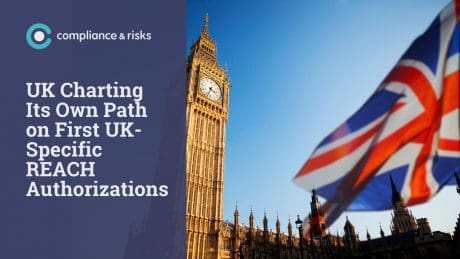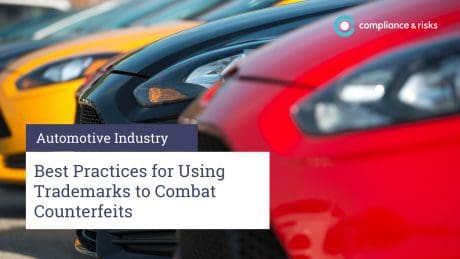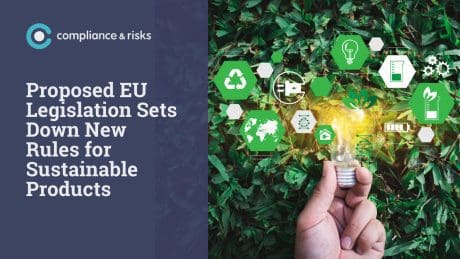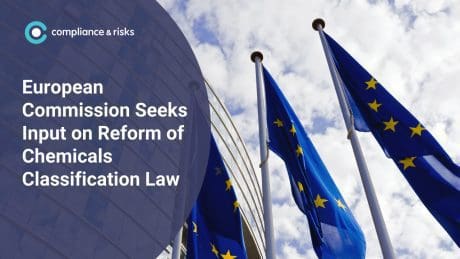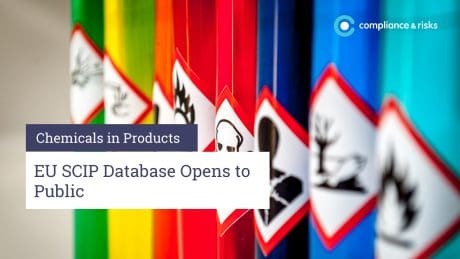
COVID-19 Regulatory Developments: Update 17

The outbreak of the COVID-19 pandemic has resulted in countries adapting their regulatory landscape to accommodate and mitigate the unprecedented disruptions to companies and individuals. Through regular updates, Compliance & Risks will closely monitor the situation and inform our clients of the latest global regulatory developments in relation to COVID-19 relevant to their topics, along with updates on items which may be of interest outside our topics.
EH&S: Occupational Health and Safety
In the United States, Senate Republicans have introduced a series of Bills to mitigate the impacts of COVID-19 on businesses. The cornerstone of this package of stimulus measures, known as the “Safe to Work Act”, provides broad liability protection to employers under several Federal employment laws for lawsuits relating to actual or potential COVID-19 exposure or changes in working conditions due to COVID-19. If enacted this liability shield will apply to employers who have made reasonable attempts to comply with applicable government standards and guidance. The Bill also protects employers against any action or personal injury resulting from testing activities carried out by a contracted third party in the workplace. Note that this protection does not apply in the event of personal injuries caused by the “gross negligence” or willful misconduct of the employer or contracted person. The Senate sponsors stressed that the Act would be necessary to “discourage insubstantial lawsuits relating to COVID–19 while preserving the ability of individuals and businesses that have suffered real injury to obtain complete relief”. The probability of this Bill becoming law is however uncertain as growing opposition has been raised over the concerns that legal immunity would eliminate all incentives to comply with Federal health and safety standards and leave vulnerable employees with the hurdle of proving the negligence of their employer with almost no recourse to challenge unsafe working conditions.
Following the example of Virginia, the Oregon Occupational Safety and Health Administration has issued temporary rules under its “Draft COVID-19 Temporary Standard”. Public comments are welcomed until 7 September 2020 with final adoption scheduled for 14 September 2020. The rule has a fairly broad scope of application in that it applies to all workplaces, albeit with additional requirements for those structures at “heightened risk” and “exceptional risk” of exposure to COVID-19. As currently drafted, the text does not specify which workplaces shall be considered at “heightened risk” and “exceptional risk”. While not final, the provisions of general application reads, “The employer must ensure that 6-foot distancing between all individuals in the workplace is implemented as follows:
(A) Both the work activities and the workplace must be designed to eliminate the need for any worker to be within 6-feet of another individual in order to fulfill their duties. To the extent that the employer determines and can demonstrate that such separation is not a practical option, the employer must ensure that face coverings are worn in accordance with (2)(b) of this subsection and that as much distance as practical is maintained between individuals.
(B) The 6-foot distancing requirement of (2)(a)(A) has been met when employees are separated from other individuals by an impermeable barrier that creates a “droplet buffer” that provides at least 6-feet in distance between the mouths of the affected individuals. Such a droplet buffer must be calculated using the shortest distance around or through gaps in the barrier. All employers with at least 25 employees at any time must designate one or more employees who will be responsible to assist the employer in identifying appropriate social distancing, proper face covering use, and sanitation measures and ensure such policies and procedures are implemented.”
On 20 August 2020, the Virginia General Assembly introduced a piece of legislation (HB 5102) which requires employers that hire 50 or more temporary or seasonal employees during any declared public health emergency to participate in the Voluntary Protection Program for the duration of the public health emergency. These employers would be required to submit an application and receive approval from the Commissioner of Labor and Industry prior to commencing the relevant project and shall comply with relevant standards for VPPP participation. Another piece of legislation (HB 5074; SB 5067) proposes to provide immunity from civil claims related to the contraction of or exposure to COVID-19. Immunity would apply to any person who can be identified as an individual, corporation, nonprofit corporation, business trust, estate, trust, partnership, association, joint venture etc. The text affords broad liability protection against action arising from any act or omission alleged to have resulted in contraction of or exposure to COVID-19 provided that the person/employer “has complied with applicable and most recent federal, state, and local laws, policies, procedures, and guidance regarding COVID-19”.
The Ontario Chamber of Commerce has updated its COVID-19 Pandemic Preparedness Toolkit. The resources contained in this toolkit have been prepared to help businesses plan for and adapt to the disruption of COVID-19. In addition to this the Ministry of Labour, Training and Skills Development has also made available on its website useful resources, tips and best practices to help employers working in the manufacturing sector. These resources are constantly updated. In its last update, the Ministry was keen to remind Ontarian employers of their obligation to notify, in writing, and within four days, both the Ministry of Labour and the Workplace joint health and safety committee if they are advised that a worker has tested positive for COVID-19 due to exposure at the workplace.
In parallel, the Ottawa City Council has extended, until the end of October 2020, the temporary by-law that makes face coverings mandatory in indoor public spaces. The Toronto Region Board of Trade has developed a free digital toolkit accessible from its website in order to guide business owners and operators on how to ensure a safe return to physical workplaces in four easy steps.
At the Federal level, the Canadian Government has been catching up with the provinces and issued a so-called “Risk Mitigation Tool for Workplaces/Businesses Operating During the COVID-19 Pandemic”. The tool is designed “to assist workplaces and businesses in considering risks to employees, customers and clients and provide examples of measures that may be implemented at the workplace/business to mitigate potential risks”. Prescribed measures range from recommending the wearing of non-medical face masks by employees, increasing the frequency of cleaning and disinfection of surfaces, and promoting physical distancing with a minimum distance of 2 metres between individuals. Recommendations for the use of PPE within the workplace should be based on a case-by-case basis assessment of the environment and risks of exposure associated with the tasks performed by the employee. Such an evaluation should be carried out in collaboration with the joint occupational health and safety (OHS) committee (if any) or in accordance with the guidance provided by provincial/territorial occupational health organizations.
The Scottish Government has published a checklist as part of its general guidance for safer workplaces. The checklist shall be used in conjunction with the general office guidance to facilitate compliance with official recommendations.
The Argentinian Decree 677/220 has made the act of promoting social gathering regardless of the number of people attending a criminal offence. The Parliament recently introduced a draft resolution which briefly clarifies the application of Decree 677/220 and confirms that criminal charges would equally apply to employers who fail to prevent social gatherings in private premises. Per Decree 677/2020, employers shall implement a minimum distance of two metres between employees and ensure that the use of enclosed areas is limited to a maximum of 50% of their capacity. Likewise, economic, industrial and commercial activities may only be carried on if their operational protocols have been approved by the provincial health authority.
Chemical Management – Biocides
The Swiss Ordinance establishing flexibility in the field of the environment in connection with COVID-19 has introduced temporary exemptions from the incentive tax on volatile organic compounds (VOCs) for certain surface disinfectants manufactured in Switzerland and disinfectant products identified by custom numbers 3808.9410 and 3808.9480. The levy on the import of disinfectants shall be refunded upon request by the importer. A recent amendment to the Ordinance further specifies that reimbursement claims by manufacturers of Swiss-made disinfectant products shall be filled up on a monthly basis but no later than 31 March 2022. Another important aspect of this Ordinance is the deferral, until 15 December 2020, of the start of the application date of the restriction on the use of Bisphenol A or Bisphenol S contained thermal paper in quantities equal to or greater than 0,002 % by mass.
In Belgium, the Federal Public Health warned against the upsurge in the number of illegal biocidal products placed on the market as surface disinfectant and hand sanitizers since March 2020. Several tonnes of biocidal products have been withdrawn from the Belgian market since the outbreak of the pandemic. The Agency has stressed that only authorized biocidal products may be used for disinfecting premises and surfaces in companies. Not all biocidal products are effective against COVID-19. It is important to consult the authorization document carefully prior to purchasing disinfectants and hand sanitizers. Only those products that have been approved as effective against COVID-19 can be sold and used for this purpose.
Data Protection
On 18 August 2020, the Colombian Superintendence of Industry and Commerce (SIC) issued a Circular which lays down mandatory measures related to the collection and processing of personal data during the COVID-19 period. In essence, any person responsible for or in charge of the processing of personal data must not collect personal data through the use of deceptive or fraudulent means. It further provides that data processors shall, in compliance with the the Data Protection Law No. 1581, 2012, inform data subjects of the specific purpose and use of the data collected. No personal data may be collected without the prior express consent of the data subject. Businesses are further required to register their database with the SIC, inform citizens of the specific rules applicable to the collection of their personal information and shall ensure to keep this information visible and available. Businesses are also expected to put human resources as well as technical and administrative measures in place to ensure adequate protection of personal data.
Single-use Plastic
In a Decree issued on 10 August 2020, the Paraguayan President temporarily authorized the implementation of the exception provided for under Article 9 of Law No. 5414/2015 allowing for the use of polyethylene bags and other conventional plastic materials in supermarkets and self-service stores. The exemption may continue until 31 December 2020.
Medical Devices and PPE
The Ministry of Health of the Republic of Uzbekistan enacted a Decree (No. 449/2020) that specifies the list of medical devices which can be imported in the context of COVID-19 without the need for prior registration and compulsory certification. The exemption will apply until 1 October 2020 and only concerns certain medical devices and protective equipment such as N95 respirators, protective goggles and medical masks. The list of medical devices/PPE and medicines exempt from registration and compulsory certification is provided in Annex I of the decree.
